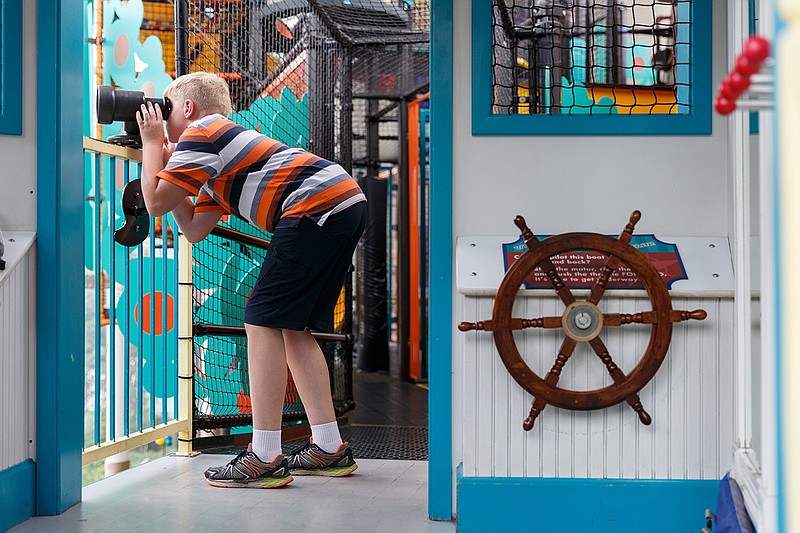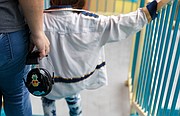Five-year-old Amelia Gilliam reaches academic benchmarks faster than most typically developing children.
She read at age 2 and memorized the periodic table before kindergarten.
But get her in a room busy with big crowds and blinking lights, and it's only a matter of time before she falls apart. She screams. She may even fight.
"A lot of people stare because they don't understand what's going on," says her mother, Christa Renee Gilliam. "They think she's just being spoiled, but she can't help it."
It's called sensory overload, Gilliam explains. Amelia is autistic.
Creative Discovery Museum not only understands; it has developed programs to help. It keeps headphones at its check-in counter to help block noise for children with sensitivity issues.
A Birmingham, Alabama, nonprofit, called KultureCity, is so impressed with the museum's efforts for inclusiveness to children that it is expected to give the museum a "KultureCity" designation on Oct. 1.
The designation means that the museum will be among several tourist destinations across the country listed on an app indicating places with accommodations for autistic children. The Tennessee Aquarium, where dim lighting, soft sounds and calming views of underwater tanks are the norm, also has the designation, says Griffin.
The nonprofit's website, www.kulturecity.org, explains that its founders are "not offering grand solutions but, instead, simple things that work. Things like helping businesses reach these children and their families with small changes in their practices."
The Creative Discovery Museum has had a free night for children to visit the museum for several years, but in 2016 it started a free Sensory Night for special-needs children.
Attending on that night is so important to Amelia that her family drives an hour from their home in Athens, Tennessee, to the museum every month.
"We don't go in big crowds. It overwhelms her. We have to wear the ear muffs even on Sensory Nights," says Gilliam.
Sensory Night
On Sensory Night, held the first Thursday of each month, the museum opens after hours from 5:30 to 8 p.m. It limits admission to only 100 visitors, compared to more than 1,000 on some free nights.
The lighter attendance decreases opportunity for overstimulation and meltdowns by autistic children. And staff lower the noise level on exhibits, avoid overhead announcements and make sure doors remain closed to keep safe children who may wander off. Nearly half of children with autism wander or bolt from safety, according to some studies.
Sensory Night marked the first time 10-year-old Houston Mason could stay at the museum for a full visit.
"He got the full benefit of what the discovery museum is about," says Houston's mom, Valicia Mason. "When it's crowded and there's a lot of noise, he'll have some fun, but he gets overwhelmed and we end up having to leave quicker."
The museum's vision is to make Chattanooga the best place for children to grow up. Children with special needs are included, says the museum's director of education, Jayne Griffin, who holds a doctorate in education.
Motivation for programming
In the late 1990s, Creative Discovery Museum partnered with Siskin Children's Institute and others who serve the special-needs community and started a program called Kids Like You, Kids Like Me. The initiative became a temporary exhibit and a continuing program to create awareness about the needs of children with disabilities.
The program operated for 12 years. When it ended, the museum determined that instead of merely bringing awareness to children with disabilities, it would create programs to serve them, says Griffin.
Amelia is one of hundreds of children with special needs for whom the museum offers programming.
Sensory Night is one of several programs targeting the population. It also offers a Friends Discovery Camp in the summer, an after-school program called Club D for kids with or without special needs, and Social Stories, a series to help prepare autistic children for a visit to the museum.
Contact Yolanda Putman at yputman@timesfreepress.com or 423-757-6431.

